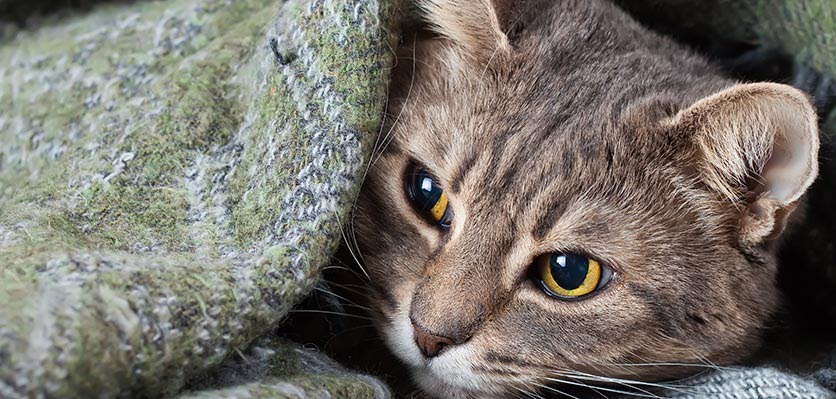
Feline AIDS is caused by the Feline Immunodeficiency Virus (FIV) which affects the immune system of cats. The virus is spread from cat to cat through saliva, often via a cat bite wound. A mother cat can also pass the virus to her kittens across the placenta or through her milk. FIV cannot be transferred to humans and dogs cannot get FIV from cats.
The virus acts in the same way as the human form of HIV, destroying the immune system and leaving a cat susceptible to infections, disease and cancers. Once a cat has been infected, FIV can then progress to feline-acquired immunodeficiency syndrome, also known as Feline AIDS.
Unfortunately, there is currently no cure for FIV and the life expectancy of a cat with FIV is variable. Approximately 18% die within five years of infection but some cats infected with FIV can live comfortably if managed appropriately. Cats that suffer from infections, fevers and weight loss due to the disease have a poorer prognosis.
Up to 30% of cats in Australia are thought to be FIV positive and the scary thing is, any cat that ventures outside and comes in contact with an infected cat is at risk.
Can we prevent the disease?
Cats that are kept inside 100% of the time are generally safe, that is unless they accidentally escape. An outdoor cat enclosure is a good way to allow your cat to get some fresh air and enjoy the outdoors safely (provided they cannot be bitten by another cat through the fencing).
Thankfully there is a vaccine available to help prevent FIV infection. All cats require an initial course of three vaccinations and then yearly boosters to maintain protection.
Ask your vet for more information if you are worried about your cat or would like to commence this vaccination program.
